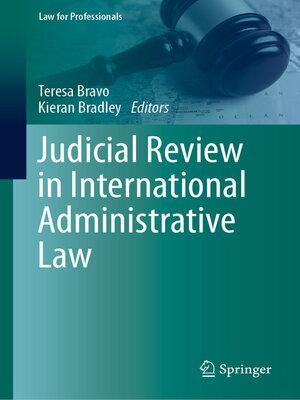
Sign up to save your library
With an OverDrive account, you can save your favorite libraries for at-a-glance information about availability. Find out more about OverDrive accounts.
Find this title in Libby, the library reading app by OverDrive.



Search for a digital library with this title
Title found at these libraries:
| Library Name | Distance |
|---|---|
| Loading... |
This book addresses the topic of judicial review in international administrative law, focusing in particular on the case law of the most established international administrative tribunals (e.g the United Nations Appeal and Dispute Tribunals, the Administrative Tribunal of the International Labor Organization, the one of the Inter-American Development Bank Group, the International Monetary Fund, the World Bank and the Organization of American States) as well as, the major challenges faced by these jurisdictions at the present time, when dealing with grievances of international civil servants.
The book is composed of seven chapters, written by legal professionals (all of them with significant experience in international administrative law) and address different subjects, such as, "the doctrine of acquired rights", the institutional setting of the administrative tribunal of the Inter-American Development Bank Group, legal standing and the role played by staff associations in the context of judicial review of administrative decisions.
The purpose was to identify the main constraints staff associations face and discuss whether it is possible (and if so, how) for those associations to challenge decisions of an administrative and regulatory nature.
The three final chapters of the book are inter-related and address the most difficult challenges in this jurisdiction, since they focus on investigations for misconduct, including harassment, and disciplinary procedures.
The authors addressed the role and mandate of the investigators, the means at their disposal to pursue those functions, as well the different standards of proof applied by administrative tribunals to disputes in these areas.







